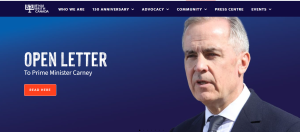In the not too distant future, the Hebrew Free Loan Association of Montreal (HFLA) will grant its 100,000th loan to someone in the community who’s buying a first home, starting a business or dealing with any number of personal financial challenges, from credit card debt to wedding or dental expenses.
As of Dec. 31, the HFLA had extended a total of 99,157 interest-free loans worth just under $136 million since it was founded in 1911.
In terms of the number of loans it has given out, the non-profit organization ranks fourth among global Jewish free loan associations, after Tel Aviv, New York and Los Angeles, which, of course, have much larger Jewish populations, said HFLA president David Cohen.
Yet, the corks are not popping at the HFLA, which operates discreetly out of a modest office building on Décarie Boulevard, where volunteers regularly meet to decide on loan applications.
Cohen and executive director Nicky Madoff said they will not truly celebrate until the number of people using the HFLA has returned to its historical highs.
They feel as though the resource – which could mean the difference between someone staying in Quebec or putting their children in a Jewish day school, for instance – is not being fully utilized.
It may seem incredible, but giving out free money is increasingly difficult. Fewer and fewer people have been applying for HFLA loans.
In 2017, the lowest ever number of loans – 475 – were handed out. That figure improved somewhat last year, when 494 loans were granted, totalling $2.46 million.
That’s a far cry from the more than 1,000 loans extended through much of its earlier history, as late as 1970. Since the early 1990s, the number has dropped off to below 800 and has only continued to spiral downward over the last decade.
There are many reasons for this, Cohen acknowledged. The community is better off generally, and both interest rates and unemployment rates have been low in recent years. On the other hand, the cost of living and expectations have climbed, especially when it comes to maintaining a Jewish lifestyle.
READ: BDS GROUP AWARDED DAMAGES FOR ELECTION POSTER REMOVAL
In recent years, HFLA’s clients have predominantly been young Orthodox families and immigrants. But one doesn’t have to be desperate to apply and no stigma should be attached, Cohen and Madoff said.
“We’re not a vestige of the past; we’re still very relevant,” said Cohen, who plans to reach out to other community organizations, rabbis, schools and professionals to make the HFLA better known.
“There’s a misconception that we’re only about serious hardship cases, but we are also concerned with improving quality of life,” said Madoff.
The organization has also adopted more inclusive guidelines for larger loans. Young couples seeking infertility treatments, jobless middle-aged people who need to retrain and elderly folks who are coping with medical expenses are all potential new clients, Cohen pointed out.
The HFLA’s low profile has traditionally kept it below the radar of many people, something it is actively working to change. It is also making it easier to get a loan.
The number of endorsers, people who guarantee the loan’s repayment, has been reduced. A loan of $3,500 or less now requires only one endorser instead of two. The maximum loan available has been increased to $18,000 from $15,000. In most cases, two endorsers, rather than three, are needed for loans from $3,501 to $18,000.
Applicants are required to fill out a number of written forms. While they must come to the office for an interview, they do not have to appear before the loan committee and make a pitch. The endorsers’ creditworthiness, however, must be established with their bank. They also must reside in Quebec and sign a promissory note.
Madoff said almost every loan request is granted and the default rate has been close to nil.
The repayment schedule ranges from 20 months for $600, to 48 months for $18,000.
The HFLA has capital of close to $4.8 million and its books are independently audited. To maintain liquidity, it relies on charitable donations.
The HFLA has also undergone an internal reorganization. Previously, the board of directors reviewed the loan applications, said Cohen. Now, the approximately 15 directors join an equal number of people on a loan committee.
Cohen’s goal is clear: “In the next 24 months, I want to get back to the 700 (loans) level, and in three to five years, 1,000.”
The new year got off on the right foot: the loan committee dealt with 34 applications at its first meeting of 2019.





